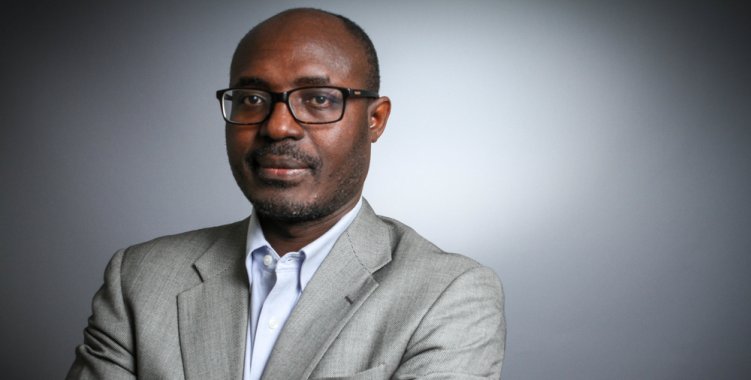In an article co-signed with the researcher and specialist in international politics Thomas j.Duesterberg, Rafael Marques points out the high costs of the "odious" debt contracted with China and calls for a forensic audit defending that, out of caution, Angola should not assume new debts with China.
"It is considered odious debt that which was contracted against the interests of the State and for the benefit of self-interest," he wrote.
The activist and journalist, director of the Maka Angola investigation and denouncement website, will participate this Tuesday in a Hudson Institute conference, which will address the issue of the influence of financial assistance from China on corruption in Angola.
The text discusses the recent visit of the Chinese Foreign Minister, Qi Gang, to Angola in January with a "gift", a loan of 250 million dollars to help Angola develop broadband technology and to revisit some "recent gifts financial resources" of Chinese origin "which have proved to be toxic".
He also addresses the debt "trap" in African countries, invoking cases of 'default' such as Zambia and questions whether Angola has sufficiently studied the risks of new credit, especially with regard to the involvement of Chinese telecommunications companies "which almost always bring the hidden cost of industrial espionage".
"There is a potential threat to Angola's national security if its advanced telecommunications structure is ultimately under Chinese control", he questions in the article, also pointing out the repercussions on relations with the US that "Angola is desperate to deepen".
But above all, he questions the need to contract a new debt with China "since Angola does not have a favorable past with regard to the management and service of foreign debt", having resorted to the IMF three years ago.
"China's loans to Angola are often involved in obscurity and controversy that the current government should be cautious about accepting more", he says in the article, indicating estimates from the Maka Angola website according to which half of the money Angola owes China has not been used in public projects and ended up in private accounts.
"This phenomenon is known as odious debt, in legal terms" so subsequent governments "should not bear the burden of paying the odious debt, especially if creditors were alerted to illegal deals in advance", write the authors.
"This is not a call for non-payment of debt in general by China or any other country", they clarify, calling instead for a renegotiation or relief of the debt that has been contracted through corrupt businesses.
Angola is Beijing's biggest African client, to whom it owes 21 billion dollars, around 40 percent of all foreign debt stock and which consumes almost half of the Angolan state budget.
"But the worst thing is that the existing debt is linked to the recent history of corruption and capture of the Angolan state", they say in the article, pointing out the case involving the China Investment Fund, the former Angolan vice-president and former boss of the oil company state-owned Sonangol, Manuel Vicente, in the sights of the Angolan justice.
Manuel Vicente, number two of José Eduardo dos Santos between 2012 and 2017, will have helped and benefited from the business of the Angolan generals 'Kopelipa' and 'Dino' with Chinese businessmen, namely Sam Pa (arrested in 2015) diverting money through state companies to personal accounts.
According to the prosecution's accusation, known last year, around 1,500 million dollars from alleged oil sales never entered the coffers of the Angolan State.
The article draws attention to the fact that the US, aligned with Angola, imposed sanctions on the two generals, but left out Manuel Vicente, pointing to the "lack of impartiality" also linked to the fight against corruption in Angola and underlining "the role of Vicente in establishing a corrupt State".
"Angola is still discovering the schemes and paying the price", reads the same text, which mentions 10 billion dollars of Chinese capital that was sent to Sonangol (without registering the purposes for which it was used) in 2016 and is registered as public debt, coinciding with the period in which Isabel dos Santos, daughter of former President José Eduardo dos Santos, led the oil company.
With regard to a possible renegotiation, the article emphasizes that in 2015, the year in which Sam Pa was arrested, the Chinese authorities already had information about the illicit transfers that were being made, disguised as loans between states.
"Angola and China have an obligation to reassess the situation", they emphasize in the document, continuing: "it is in the interest of the Angolan Government not to assume more public debt with China before a forensic audit and in case it reveals, as we suspect, that there is odious debt from the former highly corrupt regime, the leaders of both countries should consider debt renegotiation".
The authors also suggest that the United Nations analyze the issue by creating a consensus on the best way to deal with odious debt in the light of international law.
The text ends with a message to the Angolan Government, recalling that President Joe Biden did not grant an audience to João Lourenço at the US-Africa summit, nor did US Treasury Secretary Janet Yellen "honor him with a visit this year".
"In the absence of clear positions from Angola, international policy analysts are starting to question whether, as he zigzags in other national policies, President João Loureço is unable to choose the best policy for his country and its people", they conclude.
The Hudson Institute is a research center dedicated to the analysis of economic and political issues and international relations.







